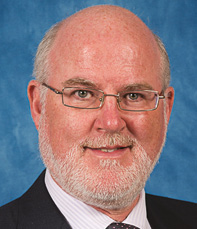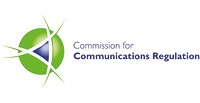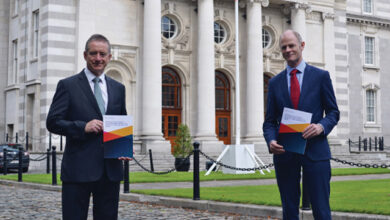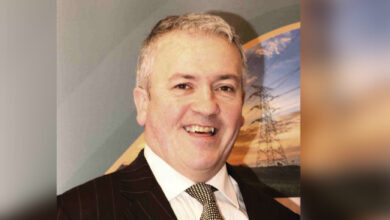A time of transition


Gerry Fahy Chairperson of the Commission for Communications Regulation (ComReg) looks back on what has been a busy year for the telecoms regulator and looks to the future in what is a fast changing sector.
Looking back on what was a busy year, the one stand out issue for Gerry Fahy was the 3.6 GHz band spectrum auction. This was the result of two to three years of work that included consultation with industry and  stakeholders around the structure to be put in place to assign the spectrum and to identify the needs of consumers and business users. An innovative approach was taken with a regional auction structure; offering rural spectrum in certain regions or just urban spectrum or a mix. “We offered a free form choice because we recognised that there were different types of spectrum users, ranging from those who wanted to provide high speed broadband mainly in urban areas to those who wanted to provide fixed wireless solutions mainly in rural areas. The approach reflected the diversity of users.” The entry criteria, including a minimum price of spectrum, was set on internationally benchmarked criteria. The auction process also recognised that there were also existing users of the spectrum and they should be given the opportunity, following the auction, to continue to provide services. The auction was successful in that all spectrum was competed for and won. There was a range of winners from mobile operators, existing rural broadband providers and one new entrant to the Irish market. “The auction generated over €70 million but that was not the objective; it was to ensure the spectrum went to those who valued it most.” The new spectrum award increases the amount of spectrum for mobile broadband and broadband uses by more than 80 per cent over a 15-year licence period. “The spectrum is a significant uplift and is particularly useable for rural broadband and we are hopeful that it will be exploited in that way,” adds Fahy.
stakeholders around the structure to be put in place to assign the spectrum and to identify the needs of consumers and business users. An innovative approach was taken with a regional auction structure; offering rural spectrum in certain regions or just urban spectrum or a mix. “We offered a free form choice because we recognised that there were different types of spectrum users, ranging from those who wanted to provide high speed broadband mainly in urban areas to those who wanted to provide fixed wireless solutions mainly in rural areas. The approach reflected the diversity of users.” The entry criteria, including a minimum price of spectrum, was set on internationally benchmarked criteria. The auction process also recognised that there were also existing users of the spectrum and they should be given the opportunity, following the auction, to continue to provide services. The auction was successful in that all spectrum was competed for and won. There was a range of winners from mobile operators, existing rural broadband providers and one new entrant to the Irish market. “The auction generated over €70 million but that was not the objective; it was to ensure the spectrum went to those who valued it most.” The new spectrum award increases the amount of spectrum for mobile broadband and broadband uses by more than 80 per cent over a 15-year licence period. “The spectrum is a significant uplift and is particularly useable for rural broadband and we are hopeful that it will be exploited in that way,” adds Fahy.
Market reviews
ComReg undertakes periodic reviews of the various telecoms markets. Over the past year there have been a number of major reviews including the review of the fixed broadband wholesale market. “eir has had a strong market position and we looked at that and wholesale access to its networks. If there is a dominant position in a market the market will not operate properly – that’s the reason ComReg exists; to create market conditions where they do not exist.” The telecoms regulator’s initial review of this market shows that there is competition in some areas of the market, particularly in urban areas. However, there are other areas that do not have adequate competition and these will have to be continually regulated. Actions proposed by ComReg in the wholesale broadband market include a change in the geographical definition of that market and also changes to the pricing rules, with more cost-based pricing in the un-competitive areas for mature products. ComReg published its preliminary position in this review and will finalise the review later this year.
Another important review, also at the preliminary findings stage, is the review of the wholesale leased line market. The preliminary findings implied competition for modern products in all areas, however ComReg identified possible problems with underlying data for some areas that were thought to have adequate competition but now needed further investigation. A further review is underway to ensure that the market is competitive in all areas. “We take a view of what the data tells us when we analyse the market data and we take appropriate action. If it is competitive we will deregulate it and if it is not as competitive as it should be then we will seek to introduce appropriate regulatory measures to address that,” explains Fahy.
One important project that was completed last year was the review of the universal services designation. Under this designation, eir continues to have the obligation to provide access to its network as the provider of last resort for fixed voice services. As a consequence eir can seek to claim back any unfair cost burden associated with the obligation. It makes an application to ComReg if it seeks its costs to be deemed to be unfair and if upheld would be entitled to compensation from the market. The methodology for this process is now mature and ComReg is about to publish its views on the applications from eir for several years as part of a consultation exercise.
“There are a lot of new things coming that will transform the telecoms sector from Internet of Things to a raft of new regulations from Europe.”
Consumer
Consumer protection is a key role for ComReg. This includes a customer complaints process for those that have gone through a telecom operator’s own complaints procedure and are unhappy with the company’s response. If ComReg sees merit in the complaint it will approach the company on behalf of the customer. “We facilitate that discussion rather than impose a decision on the operator,” explains Fahy. However, an important facet of this complaints process is the identification of underlying trends: “We look behind the complaints to see if there are any underlying patterns and if there are any problems that may lead to compliance action.” If an operator is not in compliance with the regulations and does not change its processes as required by ComReg in accordance with the regulations, ComReg can seek a court order plus, perhaps, a penalty to be imposed. “Sometimes it is important to go to court to show operators there is a consequence to ComReg’s actions and it also alerts consumers to our role. We have recently taken several operators to the District Court for charging for services customers did not receive or ask for.”
Future
Looking to the coming year, Fahy says that the governance of eir will continue to be an issue as the operator has a clear deficit in terms of compliance with certain regulatory governance obligations. ComReg is currently consulting on what measures might be appropriate to address this issue. He does acknowledge the company’s openness in confronting thecompliance issues facing it.
The Government’s Mobile Broadband taskforce will also be a major focus and it is something Fahy sees a lot of merit in: “We were keen to get involved in the taskforce as it addresses a number of issues we had identified as part of our own strategic review. Specific issues that ComReg is taking a lead on includes the quality of signal received by mobile phone handsets. Mobile devices now have much greater functionality but Fahy suggested that “perhaps the phone antenna capability has lost out”. By investigating the various handsets on the market ComReg hopes to inform consumers so that they can make better decisions about which handset will receive the best quality mobile phone signal. Another taskforce issue ComReg is leading on is the use of repeaters. As modern buildings now use foil backed insulation that blocks mobile signals, the regulator will be consulting on a new generation of repeaters which can be installed to boost the signal into a building. ComReg will also be providing its own mobile coverage maps and Fahy sees value in overlaying these maps with the handset data to help consumers chose the optimum handset.
Fahy believes that in his 35 years in the sector there has never been a period of such change. To help facilitate a public debate on these changes ComReg will be holding a stakeholder conference on 24 October in Dublin Castle. “There are a lot of new developments coming that will transform the telecoms sector from Internet of Things to a raft of new regulations from Europe.”
In concluding Fahy says: “We have a broad remit and like all public sector bodies it is a challenge to attract and retain expertise. In such a fast changing sector, the quality of our people is crucial and will become even more so in the coming years.”






